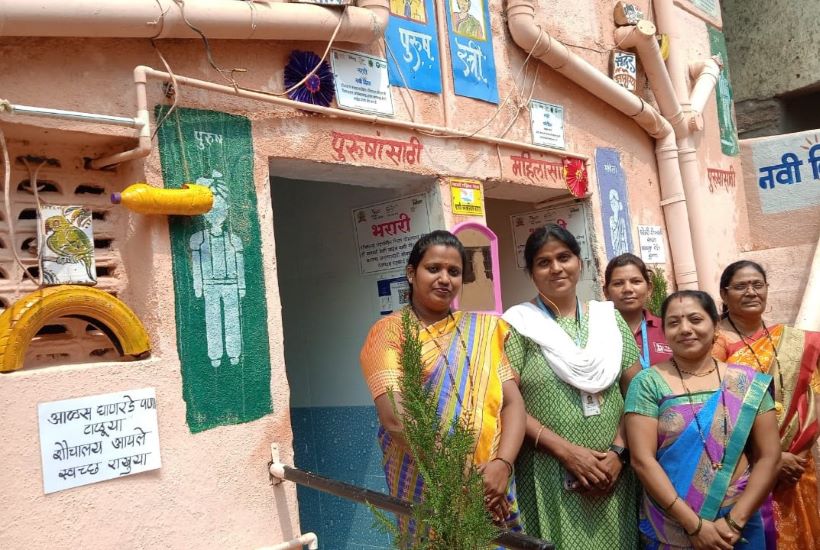Pimpri-Chinchwad (Maharashtra), Nov 19, 2024: In the heart of Pimpri Chinchwad, Sunita Dharival, a 50-year-old woman from Baldev Nagar, is rewriting the narrative around sanitation in her community. Despite having no formal education, Sunita’s unwavering commitment to her neighborhood has positioned her as a leader in toilet maintenance through the Bharari Self-Help Group (SHG). Her story underscores the transformative power of resilience, dignity, and collective action, proving that even the most stigmatized tasks can evolve into symbols of pride.
Sanitation is more than a matter of cleanliness — it’s intrinsically tied to human dignity. For millions of people, access to safe and clean toilets remains a critical challenge. In India, although remarkable strides have been made — 82.5% of households now have access to toilets — there are still considerable gaps in the maintenance of these facilities. Women like Sunita are at the forefront of addressing these challenges, playing a pivotal role in transforming sanitation into a community-driven cause.
Before her involvement in the sanitation initiative, Sunita’s life revolved around humble beginnings, working as a domestic helper. Her transformative journey began when she joined the Navi Disha initiative, launched by Pimpri Chinchwad Municipal Corporation (PCMC) in collaboration with Palladium, aimed at empowering women in underserved areas to manage sanitation facilities. Through this program, Sunita as the president of her SHG catalyzed a community-wide shift in the perception of sanitation work.
Every morning, before the first light of day, Sunita opens the upper-level toilets at the Baldev Nagar community complex while also checking the ground level toilets which remain open throughout the night. For many families without private toilets at home, these public facilities are a lifeline. Sunita’s dedication ensures that these toilets are clean, functional, and safe, and she has rallied her neighbors to contribute to water shortages, fostering a spirit of shared responsibility for their communal resources.
Sunita’s responsibilities extend beyond merely supervising the toilets. She coordinates with community members, supports the caretakers, and steps in when needed, relying on the women of her SHG to ensure that no one is left without access to proper sanitation. Through her leadership, she has transformed sanitation work from a stigmatized and undervalued task into a respected community responsibility. This has led to tangible improvements in hygiene, better health outcomes, and stronger social bonds within the neighborhood. The income generated from maintaining the toilets, amounting to INR 23,100 per month, has also provided financial independence to Sunita and her team of 10 women.
By taking charge of sanitation, Sunita and her colleagues have elevated its importance and earned the respect of their community. They have successfully broken-down social barriers that once stigmatized this work, shifting public perception of sanitation from a dirty chore to a valuable and vital service. This empowerment has not only transformed Sunita’s life but also the lives of the women around her.
The success of the Navi Disha initiative speaks volumes. It has improved community health, created safer spaces for women and children, and sparked greater local involvement. Over 50,000 families have benefited from this initiative, with more than 500 women actively managing 56 community toilets across the region.
Sunita’s journey illustrates that sanitation is not just about infrastructure — it’s about dignity, respect, and health. By empowering women and fostering community-driven change, the Navi Disha initiative demonstrates how basic human needs, when approached with dignity, can catalyze collective progress. This initiative was instrumental in Pimpri-Chinchwad winning the prestigious Medal of Honour at the Guangzhou Urban Innovation Awards 2023 in Guangzhou, China.
As World Toilet Day is celebrated globally, it’s crucial to recognize and honor the efforts of women like Sunita, who are transforming sanitation into a symbol of pride, empowerment, and progress for their communities.




















.jpg)



